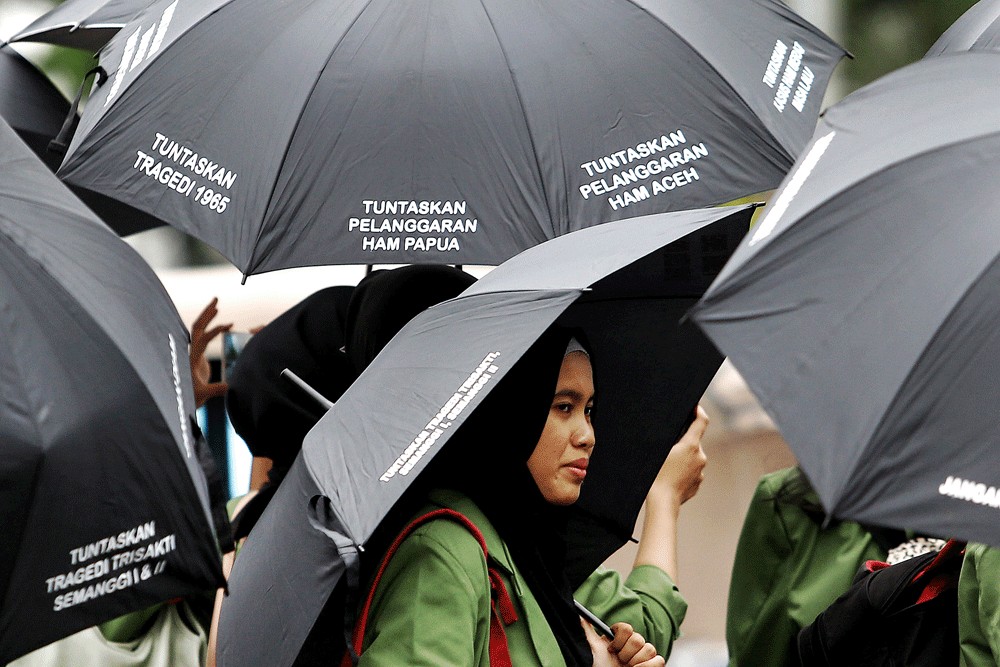Popular Reads
Top Results
Can't find what you're looking for?
View all search resultsPopular Reads
Top Results
Can't find what you're looking for?
View all search resultsConsistency in basic rights
Barely 20 years ago, Indonesia’s amendments of the 1945 Constitution finally incorporated universal basic rights.
Change text size
Gift Premium Articles
to Anyone
T
he Universal Declaration of Human Rights turned 70 years old on Monday, a relatively young age for a crucial global document. It was adopted in Paris at the United Nations’ General Assembly on Dec. 10, 1948, after the world witnessed the destruction of two world wars. In the past weeks, riots in France’s capital and other cities, initially against a higher diesel tax, suggest that even advanced nations struggle to keep their citizens content.
This is why a fundamental agreement on what constitutes human rights is critical. Barely 20 years ago, Indonesia’s amendments of the 1945 Constitution finally incorporated universal basic rights.
But to claim on Human Rights Day that our country has seen so much abuse and tolerates the neglect of human rights because we only just recently adopted them is irresponsible; it is also a weak excuse.
The struggle for every Indonesian’s rights since 1998 shows people have a better understanding of what human rights are — particularly when theirs are being trampled on.
Therefore, after including universal rights in our Constitution, we are still in the phase of upholding them consistently for all citizens. Any form of neglect reflects the lack of exposure and the lack of victims’ ability to speak up — apart from attempts to cover up rights abuses.
Saturday’s long march under black umbrellas in Jakarta is a case in point. It was a demonstration demanding the passing of a bill against sexual violence, with advocates arguing that the Criminal Code fails to address the wide range of sexual crimes.
Many might wonder about all the fuss until an acquaintance or relative encounters harassment. The perpetrator usually gets off lightly for indecent behavior — and that is if the victim was able to speak up and see the case through court despite threats, as this is too often the case.
Some critics question the potential criminalization of husbands, saying it would be against their religion to recognize rape in marriage. But the Indonesian Congress of Women Ulema issued in 2017 a clear fatwa on this, declaring that all forms of sexual violence is haram — inside and outside marriage.
Another challenge in consistently upholding the universal rights of all Indonesian lies in the case of Papua. While we recognize the freedom of conscience, this often stops each year on Dec. 1 when Papuans rally to commemorate a different version of their independence than that understood by most Indonesians.
Similar to the earlier cases of Aceh and Timor Leste (formerly East Timor), any voice for independence is greeted harshly as an act of subversion without asking why anyone would want to separate from the Republic, even amid earlier reports of harassment and discrimination against Papuans and despite the 2001 Papua Special Autonomy Law, which was deemed a breakthrough.
Freedom of worship is another difficult lesson in consistency. It’s among the prickliest issues ahead of each election, which means continued misery for minorities.
We just hosted the Bali Democracy Forum for the 11th time, with the proposal for an “inclusive democracy”. At least this should mean ending inconsistencies on our own citizens’ rights.









